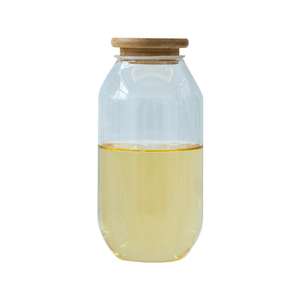Introduction to Passing Through Seal Curing Brokers: An Important Innovation in Concrete Security
Permeating seal healing representatives (PSCAs) have become a transformative service in concrete technology, supplying double benefits of surface area sealing and internal hydration improvement. Unlike standard membrane-forming treating compounds, PSCAs penetrate deep into the concrete matrix, reacting chemically with complimentary lime and other byproducts to form insoluble crystalline frameworks. This response not just seals micro-cracks and capillary pores yet additionally enhances compressive stamina and lasting sturdiness. As infrastructure needs expand for even more resilient and lasting products, PSCAs are playing a significantly important function in extending the life span of concrete structures.
(Penetrating Seal Curing Agents)
Chemical Make-up and Working System
Permeating seal healing agents are generally composed of silicates– most commonly lithium, sodium, or potassium silicates– in addition to reactive catalysts and surfactants that enhance infiltration depth and chemical sensitivity. Upon application, these representatives penetrate the porous framework of fresh or hardened concrete and respond with calcium hydroxide, a by-product of cement hydration, to create calcium silicate hydrate (C-S-H) gel and insoluble crystalline precipitates. These developments efficiently obstruct water access, chloride ion penetration, and carbonation, which are key reasons for concrete degradation. The self-sealing capability of PSCAs makes them specifically important in aggressive settings such as marine structures, wastewater therapy plants, and bridge decks.
Benefits Over Conventional Curing Methods
Typical treating methods, including wet cloth, ponding, and membrane-forming compounds, typically drop short in terms of performance, labor strength, and environmental impact. In contrast, permeating seal treating agents offer a much more reliable, durable, and eco-friendly choice. They do not evaporate or break down gradually, removing the need for repeated applications. Furthermore, due to the fact that they chemically bond with the concrete substrate, PSCAs offer long-term defense without altering surface area aesthetics or slide resistance. Their use likewise contributes to power cost savings by minimizing the need for repair and maintenance, consequently reducing the lifecycle price of concrete frameworks.
Application Across Infrastructure and Industrial Sectors
The convenience of permeating seal curing representatives has led to their adoption across a wide variety of construction applications. In facilities tasks such as freeways, airport terminals, and tunnels, PSCAs help shield against freeze-thaw damage, deicing chemicals, and abrasion. In industrial floor covering, they boost dust-proofing and put on resistance, enhancing indoor air quality and reducing maintenance downtime. Residential and business structures benefit from boosted moisture resistance in foundations, cellars, and parking garages. In addition, their compatibility with various types of concrete– including eco-friendly concrete with high fly ash or slag material– makes them a favored option for sustainable construction methods aiming to decrease symbolized carbon.
Market Patterns and Technological Advancement
The global market for passing through seal treating agents is expanding because of increasing need for high-performance building and construction products and stricter governing criteria on building sturdiness and sustainability. Manufacturers are purchasing R&D to create next-generation PSCAs with boosted penetration deepness, faster response kinetics, and minimized application times. Developments include hybrid solutions that integrate silicate-based chemistry with nano-silica or polymer-modified systems, supplying premium performance in severe conditions. Furthermore, wise distribution systems such as fogging and low-pressure spray modern technologies are being adopted to ensure consistent coverage and optimal material application. Digital devices like dampness sensing units and anticipating analytics are likewise being integrated to keep track of treating effectiveness in real-time.
Environmental Impact and Sustainability Considerations
Permeating seal healing representatives are generally considered ecologically benign compared to solvent-based sealers and standard healing membranes. Many solutions are water-based, non-flammable, and emit minimal unpredictable organic substances (VOCs). However, problems continue to be regarding the sourcing of raw materials and the capacity for alkalinity-related results during production. To address these issues, scientists are checking out bio-based activators, recycled silicate sources, and low-carbon synthesis paths. In addition, the extensive service life of cured concrete lowers the regularity of demolition and repair, aligning with circular economic climate concepts and adding to total carbon decrease in the developed environment.
Future Overview: Smart Materials and Integrated Solutions
( Penetrating Seal Curing Agents)
Looking in advance, the development of passing through seal curing agents will be driven by innovations in nanotechnology, clever materials, and digital assimilation. The advancement of receptive PSCAs that can adjust to altering environmental conditions– such as humidity-triggered activation or self-healing habits– could change concrete upkeep methods. Integration with Building Information Modeling (BIM) and Web of Things (IoT)-allowed surveillance systems will allow for data-driven choices on material efficiency and upkeep organizing. As cities deal with increasing environment pressures and maturing facilities, the adoption of innovative treating modern technologies like PSCAs will certainly be vital in making sure architectural strength and durability for future generations.
Distributor
TRUNNANO is a supplier of boron nitride with over 12 years of experience in nano-building energy conservation and nanotechnology development. It accepts payment via Credit Card, T/T, West Union and Paypal. Trunnano will ship the goods to customers overseas through FedEx, DHL, by air, or by sea. If you want to know more about potassium silicate, please feel free to contact us and send an inquiry(sales5@nanotrun.com).
Tags: concrete addtives, Penetrating Seal Curing Agents, Lithium-Based Curing Agent Seal Concrete Agent
All articles and pictures are from the Internet. If there are any copyright issues, please contact us in time to delete.
Inquiry us

